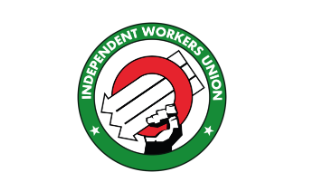Charities are being urged to mirror strategies used by Post Office scandal campaigner Alan Bates by adopting a “David vs Goliath narrative” for their lobbying and campaign work.
The call has been made in a report by nfpResearch and social action think tank the Sheila McKechnie Foundation (SMF), which says charities are like Bates as they “are not considered” by the public “to be as powerful as other groups in society” such as the media, big business, and celebrities.
“Perhaps this is something charities can use to their advantage – a David vs Goliath narrative that can be very powerful, as demonstrated by Alan Bates and his tireless campaign for justice,” said the Foundation, in reference to his campaign for justice for postmasters wrongly accused of theft during the Horizon IT scandal.
The think tank’s report is based on the views of 1,000 people surveyed last December and in-depth interviews through focus groups carried out a month later.
Older people interviewed were particularly impressed with Bates’ strategy in campaigning. and admired his perseverance.
Use the ‘right language’
SMF also urges charities to use the “right language” when campaigning due to public concern around the word “lobbying”.
“Language such as 'having a voice in parliament' and 'challenging government' is acceptable to the majority. Lobbying is something best left to others,” it said.
For example, three quarters of the public believe charities should have “a voice in parliament” but only 45% believe it is acceptable for charities to lobby government.
“In the media, lobbying is often reported on as negative and secretive,” said SMF.
“A quick Google news search for the word brings up stories of an MP suspended for a lobbying scandal, Amazon lobbyists being banned from the EU parliament, and water companies trying to increase bills and lower fines.”
Comparing campaigns
Public’s attitude to different forms of campaigns were also looked at for SMF’s report.
For this analysis it compared reactions to environmental charity campaigning around removing green protections, RNIB’s lobbying around proposals to close train ticket offices and Crisis’s campaigning to scrap the 200-year-old Vagrancy Act, which makes rough sleeping a crime.
All those interviewed supported the RNIB and environmental charities’ campaigns, which they felt “was within the charities’ remit and that they should be campaigning on these issues”.
But interviewees were unsure about the value of Crisis’s campaigning, as they were sceptical this outdated law was still being used by police “and felt that the money spent campaigning would be better used elsewhere”.
This suggests that the public is “more comfortable with some charity sectors lobbying rather than others”, says SMF.
“For charities like Crisis, which provides services for the homeless, participants questioned whether campaigning was the best use of their resources,” states SMF’s report.
“Comparisons were made between spending resources on campaigning versus spending on hostels, housing, or mental health support.”
SMF director of policy and communications Chloe Hardy said charities should respond “optimistically” to its findings.
“People are clearly willing to support charities campaigning if they get the right information in the right way,” said Hardy.
Charity Times video Q&A: In conversation with Hilda Hayo, CEO of Dementia UK
Charity Times editor, Lauren Weymouth, is joined by Dementia UK CEO, Hilda Hayo to discuss why the charity receives such high workplace satisfaction results, what a positive working culture looks like and the importance of lived experience among staff. The pair talk about challenges facing the charity, the impact felt by the pandemic and how it's striving to overcome obstacles and continue to be a highly impactful organisation for anybody affected by dementia.
Charity Times Awards 2023
Mitigating risk and reducing claims

The cost-of-living crisis is impacting charities in a number of ways, including the risks they take. Endsleigh Insurance’s* senior risk management consultant Scott Crichton joins Charity Times to discuss the ramifications of prioritising certain types of risk over others, the financial implications risk can have if not managed properly, and tips for charities to help manage those risks.
* Coming soon… Howden, the new name for Endsleigh.
* Coming soon… Howden, the new name for Endsleigh.
Better Society

© 2021 Perspective Publishing Privacy & Cookies











Recent Stories